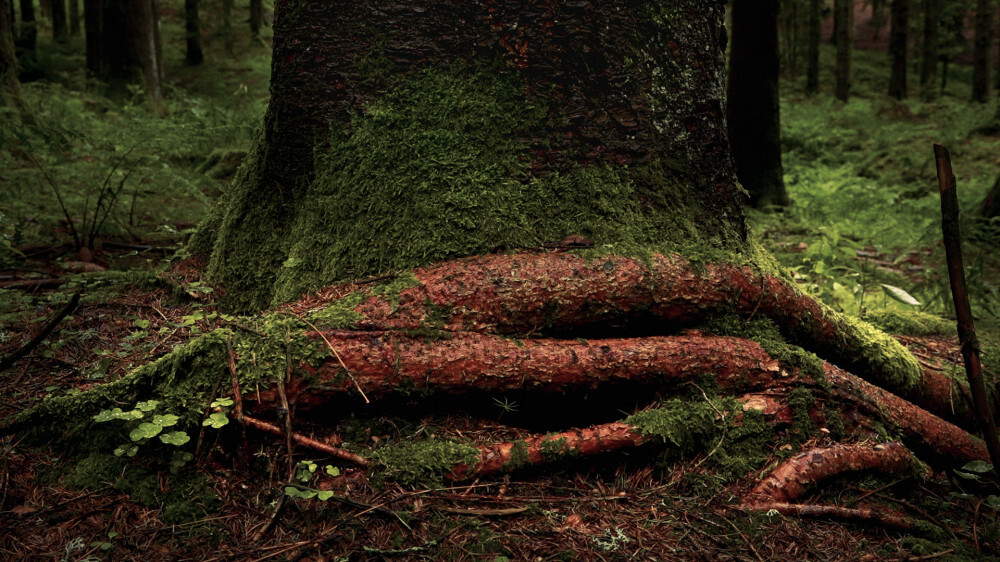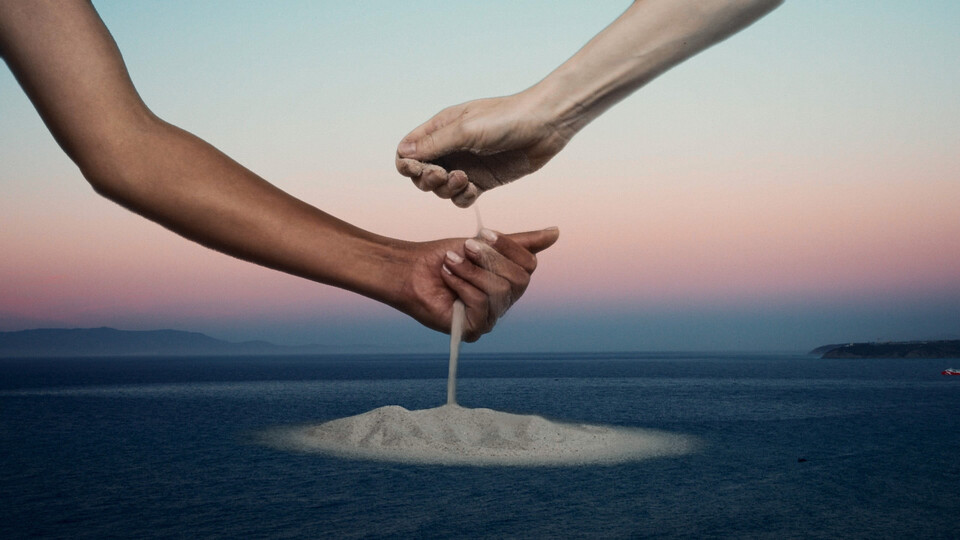Are we experiencing dystopia today?
Frédérick Cousseau, a former rock musician, will present his film called NU at Ji.hlava this year. It is a poetic documentary dystopia, composed as a personal correspondence between woman-Nature and the last living man. Through images of nature scenery and desolate conveniences of the civilization, it asks – are we experiencing dystopia today?
NU is quite an extraordinary title. What does it represent?
The meaning of the title can be interpreted in different ways. Does it relate to the man? To the nature? To the nature without the man? To the man without the nature? It also represents, in a very concrete way, a great fragility, a non-certainty which is that of the future of the nature and therefore of humanity. You will notice that we put the nature first because without it the man will disappear. And obviously he has not yet understood it. A very short title, a two-letter word that has a strong meaning, it corresponded well to the film.
Your film is not conceived as a classical documentary, it is more of an essayist disputation between two basic archetypes - the Man and the Nature. Therefore, considerable scriptwriting preparation had to be inevitable. How did you approach to writing of poetic dialogues? Did you write them by yourself?
The first steps of the film were the writing of a dialogue between the nature and the man. We were not particularly interested in writing a poetic text. It was a kind of dialogue between two lovers. The end of love. At first the text was quite long. We reduced it a lot as the film was built. The film took three years. We wanted to take the time to do it. Because it was also a film about time in a certain way: the time of the nature and that of man. Unfortunately the man has managed to impose his rhythm on the nature, so he has modified it, and it is something very dangerous. He wanted to take control of the nature. The problem is that man, precisely, has now lost control. The work of the film was exciting. We did not know at all what the film would look like when finished. We thought it would indeed be closer to the "film essay“ genre, and it is still very vague. But that did not worry us much. As we produce our own movies, we are very free, and this freedom was perfect for NU.
NU is structured by changing perspectives, or otherwise speeches of the two archetypes. Did you create the concept of individual segments at the beginning of shooting? Or was the result, which the audience will see, developed more in the editing room?
The construction of the film was completely hazardous, but with all that chance can create as discoveries and surprises. We did not have a concept in mind. The film was made in this way: a dialogue between the nature and the man. Then we went to shoot for the first time in the winter. Back, we started editing the first images. Which influenced the rewriting of the text. Then we left to turn in the spring. On the return, we completed the assembly. Then we rewrote the text. And again we left to turn. We also eliminated a lot of things, it was very creative. We recorded the voices (which are ours) and we tried them on the image. The editing work was of course very important.
Besides the specific way of „narrative“ structure, NU has quite interesting genre background in the post-apocalyptic, or dystopic tradition. Have you taken any inspiration from specific works or authors related to this genre?
The idea of an apocalyptic horizon, of an end of the world, of an inexorable collapse of civilization, is not new. There are a lot of books and movies on the subject. We were not inspired by particular works, but rather by reality. And more precisely by things that we are feeling now. Are we today experiencing a dystopia? Everything imagined in works of fiction or anticipation is happening in reality. And that's pretty amazing. Time thus begins when the end of humanity has become quite certain in a rather short historical horizon. It's something we feel deeply. Animals have this instinct to feel when the end is near. We may have become a bit like them. To make this film was perhaps a way of accounting for this incredible fact: the collision between fiction and reality in our world. Our project was also to work on the nature, its materials, lights and colors. It was very instructive to observe it with special attention. But the nature does not care much about us, even if we will make it suffer a lot in our downfall. She will recover, as she has always done, with or without the man. Maybe we wanted to give her a kind of homage, to thank her for her beauty and her mystery. Because ultimately we are a part of her, which we forget too often.
Environment is one of the key elements for dystopic genre. Where did you shoot NU and by which criterions did you choose concrete locations?
We shot a lot in Les Vosges (region in the East of France), in different seasons. This region has many advantages: it has a great diversity of landscapes, and it's still pretty wild. The nature is exciting to shoot, even if it is difficult because she is very capricious. You have to be really patient, get up very early. The light can change very quickly. But we are always surprised by her. We shot sea pictures in Normandy. There are also Ukrainian landscapes that came from one of our film, as well as images shot in the United States. We searched for a variety of images that reflected our world, and that of course worked together.
As I have suggested in the first question, personally I see your film primarily as a poetic filmic essay. In your position as director, what are the advantages of such format and, on the contrary, what are its disadvantages?
When we start working on the idea of making a film "out of format", as can be a film essay, we do not ask too much these kinds of questions, otherwise there will be only disadvantages, and quite a few advantages. But for NU, it was an exciting adventure that we intend to continue, because the nature has not said its last word…


